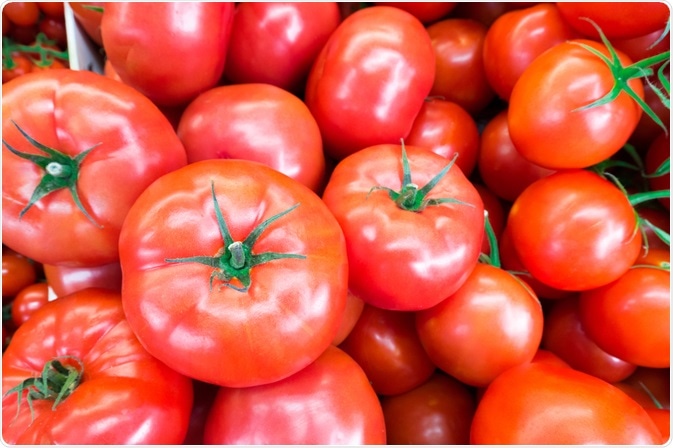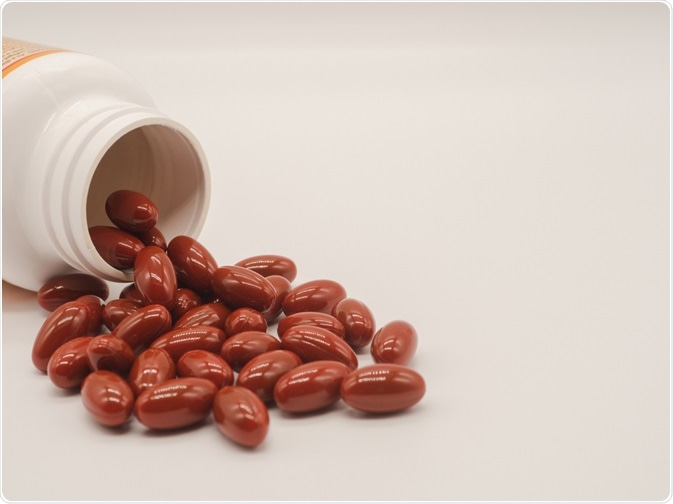Many natural products have desirable health-enhancing properties, such as free radical scavenging. Free radicals are by-products of normal cell metabolism that cause damage and malfunction by oxidizing blood vessel walls, protein molecules, DNA, carbohydrates, and membrane lipids.
Although the human body naturally produces antioxidants to neutralize the damaging free radicals, it cannot do so in sufficient quantities to fully protect against oxidative damage.
Since elevated amounts of free radicals are thought to contribute to the development of diseases such as cancer, cardiovascular disease, Alzheimer's disease and macular degeneration, there have been efforts to increase the population’s intake of antioxidants.
Vitamin C, vitamin E, carotene, and lycopene, which are found in fruit and vegetables, beans and nuts, all have significant antioxidant activity and health benefits have been reported among people routinely eating antioxidant-rich foods.
To provide widespread health benefits, there is much interest in supplementing manufactured food products with antioxidants. One of the compounds that has been extensively investigated for this purpose is lycopene.
Lycopene degrades rapidly under heat and humid conditions. In this case study, researchers used NMR spectroscopy to investigate the potential of using natural products to encapsulate this antioxidant agent.
 Tomatoes are a natural source of lycopene. Image Credit: Supapun Narknimitrung / Shutterstock.com
Tomatoes are a natural source of lycopene. Image Credit: Supapun Narknimitrung / Shutterstock.com
Lycopene
Lycopene is a naturally occurring red carotenoid pigment present in tomatoes, watermelon, pink grapefruit, pink guava and papaya. It is a powerful antioxidant, being more than twice as effective at mopping up free radicals as ß-carotene1. Research indicates that lycopene is associated with a reduced risk of developing some degenerative diseases, prostate cancer and cardiovascular disease2.
As is the case with many bioactive substances, lycopene is not stable in normal environmental conditions due to the high number of unsaturated bonds it contains3. This complicates the provision of lycopene as a nutritional supplement without losing its beneficial properties. A potential solution that has been receiving much attention is encapsulation4.
Encapsulation of bioactive compounds
Encapsulation is the process by which active agents are contained within a carrier material to improve the stability and preserve the quality of the contents by protecting them from interaction with their environment.
As such, it enables unstable compounds to be stored without losing quality and introduced into the body without undesirable reactions occurring. The technique is thus increasingly being used by the food industry to introduce health-promoting bioactive molecules, such as lycopene, into foods.
There is ongoing research to improve encapsulation methodologies, much of which focuses on the process of encapsulation and the products used to form the capsule5. Currently, the simple and mild aqueous-based gel formation achieved by the ionotropic gelling of calcium alginate remains an attractive option for biomedical, food and pharmaceutical purposes.
However, the low capacity of this capsule to protect against low temperature and low humidity have limited its application in these areas since freezing and dehydration are commonly used to enhance conservation.
To overcome this difficulty, the addition of cryoprotectants and dehydroprotectants is being explored as a means of ensuring the stability of the capsule contents during processing and storage6.
Such potential additives include trehalose, which can protect biomolecules by inducing the formation of an amorphous system), b-cyclodextrin, which can form inclusion complexes with lycopene producing molecular encapsulation, and chitosan, which can form an additional barrier by direct complexation with the alginate capsule.
In addition, pectin and arabic gum can reduce the amount of freezable water present in the capsule, thereby protecting the contents.
 Image Credit: pixjets / Shutterstock.com
Image Credit: pixjets / Shutterstock.com
Evaluation of protective effects of additives to lycopene formulations
The efficacy of these protective additives against freezing and drying treatments has recently been investigated in a study of the stability of lycopene extract encapsulated in calcium-alginate beads7.
Lycopene was extracted from pink grapefruit and encapsulated using sodium alginate with or without the excipient sugars (trehalose and bcyclodextrin), cationic biopolymer (chitosan) and two anionic biopolymers (pectin and arabic gum). The effect of the formulation was analyzed in terms of the lycopene content and its stability, as well as the physicochemical properties of the obtained systems.
Low-field proton nuclear magnetic resonance measurements, proton transverse relaxation times and diffusion coefficient were evaluated using specific pulse sequences on a Bruker Minispec mq20 spectrometer. In the isothermal studies, the temperature was controlled using a Bruker BVT3000 unit.
A severe loss of lycopene content was observed in beads containing only alginate. However, the addition of trehalose with b-cyclodextrin and arabic gum protected more than 80% of the lycopene content after freezing and drying, regardless of the freezing or drying methods employed.
Isothermal studies confirmed the water-reducing effects of trehalose (with or without the other excipients), and showed that this reduced the time required to achieve 50% of crystallization during freezing.
The latest findings illustrated that encapsulation is an appropriate process to facilitate the delivery of active lycopene and that the addition of trehalose with b-cyclodextrin and arabic gum provided the necessary protection thermal and hydric stress.
References
- Kelkel M, et al. Antioxidant and anti-proliferative properties of lycopene. Free Radic Res. 2011;45(8):925-940.
- Costa-Rodrigues J, et al. Food Chemistry 2018;245:1148–1153.
- Hernandez-Almanza A, et al. Trends in Food Science & Technology 2016;56:142–148.
- McClements DJ. Current Opinion in Food Science 2018;23:80–84.
- McClements DJ, Jafari S.M. Advances in Colloid and Interface Science 2018;251:55–79.
- Traffano-Schiffo MV, et al. Biomacromolecules 2017;18:1785–1792.
- Aguirre Calvo TR, Santagapita PR, et al. International Journal of Food Science and Technology 2018; doi:10.1111/ijfs.13946.
About Bruker BioSpin Group
The Bruker BioSpin Group designs, manufactures, and distributes advanced scientific instruments based on magnetic resonance and preclinical imaging technologies. These include our industry-leading NMR and EPR spectrometers, as well as imaging systems utilizing MRI, PET, SPECT, CT, Optical and MPI modalities. The Group also offers integrated software solutions and automation tools to support digital transformation across research and quality control environments.
Bruker BioSpin’s customers in academic, government, industrial, and pharmaceutical sectors rely on these technologies to gain detailed insights into molecular structure, dynamics, and interactions. Our solutions play a key role in structural biology, drug discovery, disease research, metabolomics, and advanced materials analysis. Recent investments in lab automation, optical imaging, and contract research services further strengthen our ability to support evolving customer needs and enable scientific innovation.
Sponsored Content Policy: News-Medical.net publishes articles and related content that may be derived from sources where we have existing commercial relationships, provided such content adds value to the core editorial ethos of News-Medical.Net which is to educate and inform site visitors interested in medical research, science, medical devices and treatments.